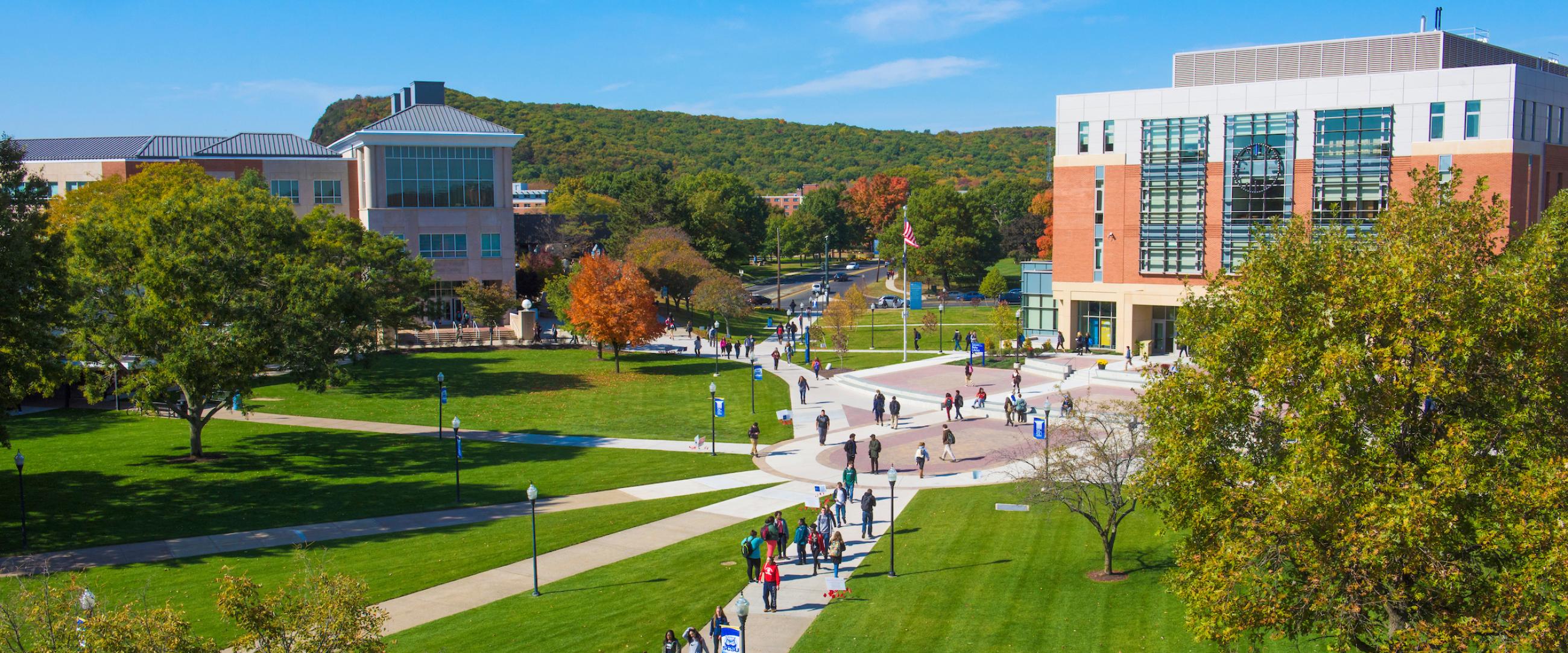Physics is more than the basic science that brings us closest to comprehending the universe and the laws of nature — it is also the foundation for a technological economy. The physics curriculum is an opportunity to learn the power of scientific thinking, to build a respect for evidence, and to see the beauty and consistency of natural laws.
We seek to build our students’ active curiosity, investigative skills, intellectual independence, and confidence. The Physics department has active research programs in astronomy, materials science, nanotechnology, magnetism, optics, biophysics, and high-energy physics. We have collaborative ties with technology-oriented companies in Connecticut to complement our interactions with physics and engineering faculty at nearby Yale and other universities.
Concentrations
Physics, B.A.
This program offers students the greatest flexibility in choosing courses of interest. Imaginative combinations are possible which enable the student to relate the study of physics to wide-ranging areas such as the social sciences and the fine arts as well as the other natural sciences. Students who are interested in teaching in elementary schools can double-major in Physics and Elementary Education It also develops advanced skills in quantitative and analytical thinking for a career in business, law, medicine, or other professions.
Physics, B.S. - General
The General program emphasizes inquiry in depth into the central principles, analytical techniques, and key applications of physics. The program requirements form the core of the preparation expected for graduate study in fundamental and applied physics or for initial positions in physics-based careers. Students can prepare for productive industrial and governmental research, development, and technical management careers, and for many other science and technology-oriented professional opportunities.
Physics, B.S. - Engineering
The Engineering concentration is designed for students whose primary interest is in the applications of physics in engineering and advanced technology. It integrates intensive study of the underlying science with training in the practice of engineering. An engineering education requires a solid scientific foundation based on principles of mathematics and physics. Some of the technological fields that require a strong background in physics include materials science, nanotechnology, telecommunications, digital imaging, renewable energy systems, and microelectronics. This concentration provides the opportunity to prepare for employment or graduate study in any of these critical areas of innovation. There is also an increasing emphasis on connections among scientific and engineering fields and this degree program provides excellent preparation for an interdisciplinary future. The Engineering concentration also offers valuable preparation for technology-oriented careers in business management and marketing.
Physics 7-12, B.S.
The B.S. 7-12 program prepares students to be physics teachers at the junior high and high school levels. Students develop a strong foundation in the principles, concepts, analytic methods, and experimental techniques of physics and cognate subjects required at the bachelor-degree level. Together with the study of physics, the student pursues a curriculum in the foundations of education and teaching at the secondary school level, including a one-semester student teaching practicum.
Students who successfully receive the B.S. 7-12 degree and pass Praxis® II will be recommended for Initial Teacher Certification.
Learning Outcomes
Prior to graduation from a physics program at Southern, students will have developed:
- Quantitative Problem-Solving Ability
- Conceptual Understanding of Core Concepts
- Scientific Reasoning Ability, Experimental and Research Skills
- Understanding of the Nature of Science
- Written Communication Skills
- Oral Presentation Skills
- Technological Fluency
Laboratories and Areas of Research
We have laboratories equipped with a range of instrumentation for research in a number of subfields of physics.
- Biomedical Imaging
- Nano-materials synthesis
- Materials characterization by atomic force scanning probe and electron microscopy, spectrophotometry, and custom apparatus for measurement of electrical and thermal transport properties (superconductors) at low temperatures
- Advanced sample preparation techniques for transmission and scanning electron microscopy
- Laser spectroscopy, interferometric, fiber optic, and other photonics studies
- Astronomical imaging and instrument development
- Computational modeling of exotic magnetic systems and other many-body events
- High-energy nuclear and particle physics
Careers
Our physics students go on to do research, engineering, and systems development in industry or to study advanced physics, materials science, or engineering in graduate school. Some have earned degrees in medicine, which increasingly depends on applied physics. Business and government demand analysts and managers to master complex systems and solve profound problems from telecommunications to global warming.
Typical Job Titles
- Physicist
- Astrophysicist
- Nuclear Physicist
- Optical Physicist
- Material Scientist
- Biophysicist
- Computational Physicist
- Research Scientist
- Data Scientist
- Mathematician
- Engineer

